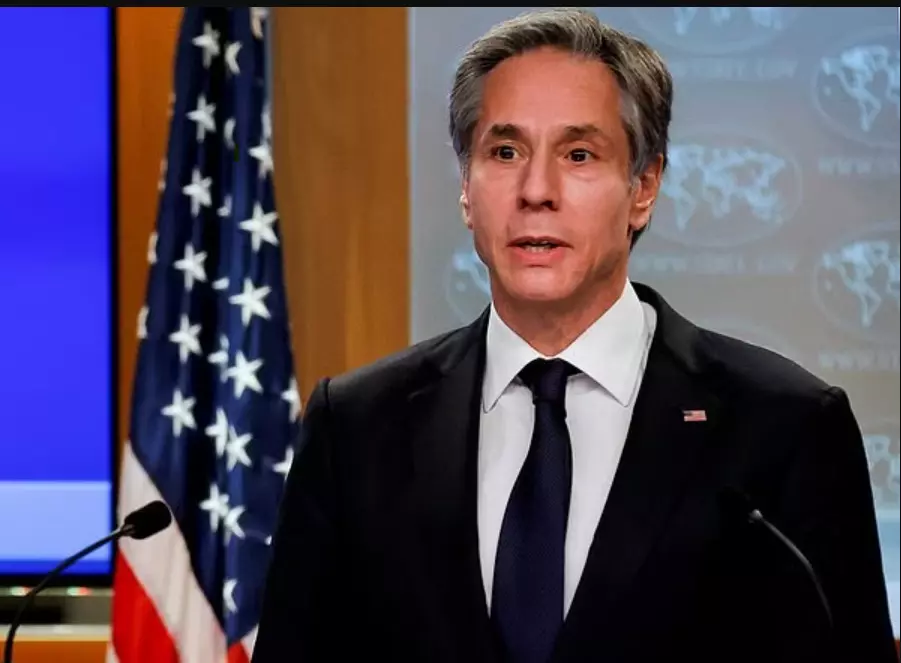A wayward initiative
US’ new visa policy aimed at ensuring ‘free and fair elections’ in Bangladesh presumes a ‘false dilemma’ and contradicts the interests of the US and South Asia

On May 24, US Secretary of State Antony Blinken announced a new visa policy via Twitter, warning about US visa restrictions “on individuals and their immediate family members if they are responsible for, or complicit in, undermining the democratic election process in Bangladesh.”
The policy is abrupt and random at best and directionless at worst. Enacting a policy based on a ‘false dilemma’ like “You are either with us or against us…” to ensure a so-called free and fair election would be a band-aid solution to a predominantly Muslim country with a classic "liberal democracy" crisis.
Let me explain why the policy is abrupt, random, and directionless.
First, when the United States is in a ‘false dilemma,’ the outcomes may as well be like an ignominious retreat from Afghanistan and Iraq. Specifically, after investing USD 2.31 trillion in two decades, the withdrawal from Afghanistan indicates that the United States is not committed to democracy in foreign countries.
Second, one may challenge the US's moral authority in ensuring a free and fair election in Bangladesh, citing the US failure to enforce free and fair elections marred for years by the suppression of minority voters, threats against poll workers, gerrymandering, depriving minority voters of political power, and corporate monies threatening the US democracy. How would the United States determine a free and fair election in Bangladesh when, in a poll, 40 per cent of Americans perceived the 2020 Presidential election unfair? In another survey, about 61 per cent of Republicans questioned the legitimacy of Joe Biden's Presidency. I am not questioning the legitimacy of the 2020 election. My question is, will the United States consider the perception of the disgruntled election losers while implementing the new visa policy?
Third, suppose the US policy manages to enforce free and fair elections in Bangladesh; will it be able to safeguard the security of voters and supporters of the defeated political parties from post-election violence? The October 2001 parliamentary election victory of the Islamic coalition led by the Bangladesh Nationalist Party (BNP) and Jamaat-e-Islami (JI) unleashed an unprecedented attack against the Hindus. The Hindus were targeted for voting for Bangladesh Awami League, leading to massive looting and burning of houses, raping of Hindu women, and evicting Hindus from their homes. The violence against minorities and political dissidents continued throughout the BNP-Jamaat rule during 2001-2006, in some cases, with the direct patronage of the coalition leaders.
Fourth, free and fair elections are only one component of “liberal democracy.” Bangladeshi political parties, and even some civil society groups in Bangladesh, do not seem to be committed to the rules of law, separation of powers, and the protection of freedom of speech, assembly, religion, and property rights. A group of disgruntled members of civil society who often espouse democratic values supported a military-led civil society-technocratic coalition takeover on January 11, 2007. The new coalition supported a ‘minus-two theory’ — similar to colonial strategies of evicting political leaders from the political sphere to ensure a tyranny of the new status quo. But a massive student-led protest demanding the withdrawal of the military camp from Dhaka University foiled the experiment, and its proponents caved into political establishments.
Lastly, what if a free and fair election brings a fundamentalist Islamic coalition into power — similar to the 2012 Egyptian election? Elected in a free election, victorious Mohamed Morsi, an affiliate of the Muslim Brotherhood and leader of the Freedom and Justice Party, later tried to impose Shariah under democratic cover only to be deposed by a military dictator, General Abdel Fattah el-Sisi.
Instead of announcing random policy via Twitter, to ensure US security and economic interests in South Asia, the United States must:
✼ Do an independent assessment, devise a sustainable strategy to promote "liberal democracy," and avoid paying attention to lobbying groups who might have also been accused of disrupting elections, violating human rights, or both.
✼ Ensure post-election safety and political participation of the supporters of the defeated parties and the minorities.
✼ Ensure the safe return of hundreds of bloggers and activists forced to take refuge in Europe and America after the massive onslaught of blogger killing sprees by extremist Islamic outfits during 2013-2015.
If the current policy based on the 'false dilemma' fails, the United States risks losing leverage in South Asia to China and extremist political outfits.
The writer is a PhD scholar. Views expressed are personal



